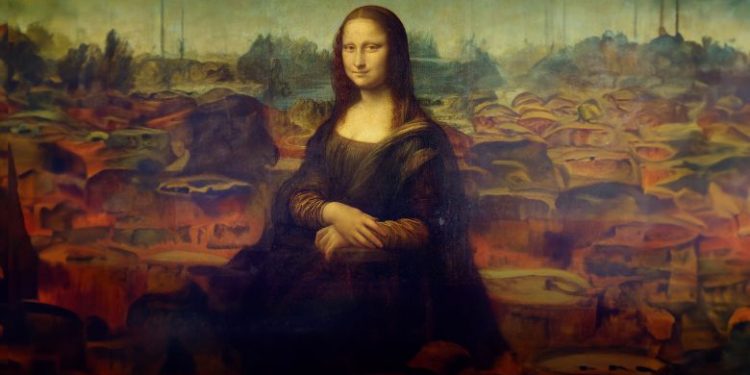Table of Contents
Introduction
In the world of art, technology has always played a significant role in shaping creative expression. With the advent of Photoshop‘s new generative AI tool, artists and enthusiasts alike have gained a powerful tool to expand and explore their artistic masterpieces. This article delves into the capabilities of Photoshop’s generative AI tool and how it has the potential to redefine the way we approach art. Specifically, we’ll explore its impact on one of the most iconic works in history: the Mona Lisa.
What is Photoshop’s Generative AI Tool?
Photoshop’s generative AI tool is a cutting-edge feature that utilizes artificial intelligence to generate new content based on existing images. It leverages machine learning algorithms to analyze patterns, textures, and styles from a given image and extrapolates them to create new variations. This tool empowers artists by providing them with a wide range of possibilities to expand and experiment with their creations.
The Impact of Generative AI on Art
The introduction of generative AI in the world of art has brought about several transformative changes. Let’s explore some of the key impacts:
Enhancing Creativity and Experimentation
Generative AI opens up new horizons for artists, allowing them to break free from traditional constraints and explore uncharted territories. By generating alternative versions of their artwork, artists can experiment with different styles, color schemes, and compositions, fostering innovation and pushing the boundaries of their creativity.
Replicating Art Styles
Generative AI enables artists to replicate the styles of renowned artists and art movements with remarkable precision. By analyzing a vast library of reference images, the AI tool can extract key characteristics and apply them to the artist’s work, effectively mimicking the chosen style. This feature provides artists with a unique opportunity to pay homage to their artistic influences while infusing their personal touch.
Preserving Artistic Legacy
Generative AI plays a crucial role in preserving and reviving the artistic legacy of historical masterpieces. By expanding upon iconic works like the Mona Lisa, artists can breathe new life into them, making them more accessible to modern audiences. This process not only honors the original artist’s vision but also introduces contemporary audiences to the timeless beauty of classic art.
Exploring the Mona Lisa Expansion
One of the most fascinating applications of Photoshop’s generative AI tool is its ability to expand and explore the Mona Lisa. By leveraging the vast amount of data available on this masterpiece, artists can create new compositions inspired by Leonardo da Vinci’s iconic work while adding their own unique flair.
Using Generative AI to Expand the Masterpiece
With the generative AI tool, artists can generate additional elements to complement the original artwork, seamlessly integrating them into the existing composition. They can experiment with different backgrounds, foreground elements, or even add subtle details that enhance the viewer’s experience. The AI tool assists artists in expanding the visual narrative and enriching the storytelling within the artwork.
Maintaining the Essence of the Original
While the generative AI tool allows for artistic exploration, it is essential to preserve the essence and integrity of the original artwork. Artists must strike a delicate balance between innovation and reverence to ensure that any expansion retains the spirit and emotion conveyed by the Mona Lisa. The AI tool can aid artists in maintaining the authenticity of the original piece. Resulting in a harmonious blend of tradition and innovation.
The Future of Generative AI in Art
As generative AI continues to evolve, it holds tremendous potential for the future of art. Artists can anticipate further advancements that will enhance their creative capabilities and redefine the artistic landscape. With each iteration, the AI algorithms will become more sophisticated, offering new tools and possibilities to artists worldwide.
Conclusion
Photoshop’s new generative AI tool has ushered in a new era of artistic exploration and expansion. Through its capabilities, artists can unlock their creative potential, replicate art styles, and preserve the legacy of iconic masterpieces. The Mona Lisa serves as a prime example of how generative AI can be utilized to expand upon renowned works while maintaining their intrinsic value. The fusion of human creativity and AI-powered tools promises to shape the future of art and enable artists to create captivating and innovative pieces.
FAQs
Q1: Can generative AI completely replace human artists?
A: Generative AI serves as a tool to assist and enhance human creativity rather than replacing artists. It empowers artists to explore new possibilities and expand their artistic expressions.
Q2: Is it ethical to expand upon historical masterpieces using generative AI?
A: The expansion of historical masterpieces using generative AI is a subject of ongoing debate. It’s important for artists to approach this process with respect and a deep understanding of the original artwork’s cultural and historical significance.
Q3: Are there any limitations to generative AI in art?
A: Generative AI in art still has certain limitations. While it can generate impressive results, it may lack the emotional depth and intentionality that human artists bring to their work. Additionally, AI-generated art may raise questions of authenticity and originality.
Q4: Can generative AI help emerging artists gain exposure?
A: Yes, generative AI can assist emerging artists by providing them with a platform to showcase their creativity and gain recognition. It can also help them experiment with different styles and techniques to find their artistic voice.
Q5: Where can I access Photoshop’s generative AI tool?
A: To access Photoshop’s generative AI tool, you can visit the official Adobe website or explore the Creative Cloud suite, which offers a wide range of powerful tools for artists and designers.
Read Also: ‘Little Mermaid’ Swims to $10.3 Million at Thursday Box Office






























